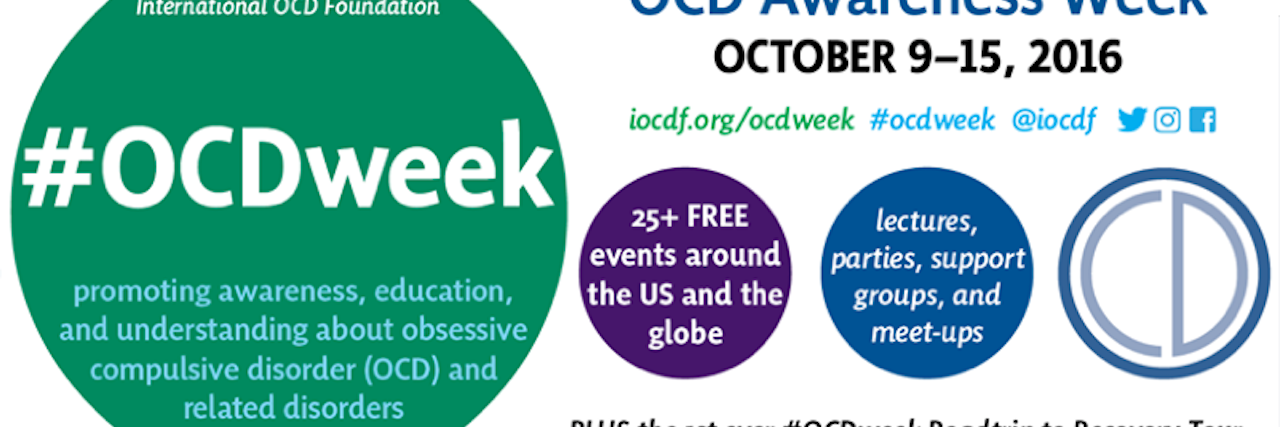This week is OCD Awareness Week! As someone who has lived with obsessive compulsive disorder (OCD) almost my entire life, I wanted to write a quick fact sheet about the disorder, and hopefully, do my part to increase awareness. If you have just two minutes to spare, continue reading to learn more about what OCD really is.
What is OCD?
OCD stands for obsessive-compulsive disorder. This is a mental health disorder characterized by a cycle of compulsions and obsessions. Obsessions are unwanted, intrusive thoughts, images or urges that increase anxiety and distressing feelings. Compulsions are behaviors an individual performs to try to reduce this anxiety or distress.
Is it just hand washing or counting?
Obsessions and compulsions can be incredibly diverse, adapting to each individual’s environment and the situations they encounter. Common obsessions include, but are not limited to:
- Fear of certain unlucky numbers or colors
- Fear of contamination with germs or chemicals
- Fear of losing control and harming others
- Excessive concern with morality
- Concern with doing or remembering something perfectly
Common compulsions include, but are not limited to:
- counting while performing a task to try to end on a “safe number”
- rereading or rewriting
- washing hands excessively
- mentally reviewing events to check that you did not cause harm
Who is affected by OCD?
OCD can affect anyone of any age, ethnicity or background. The estimated prevalence is about 2 percent of adults and about 0.3 to 1 percent of children.
What is the difference between having OCD and liking things a certain way or being organized?
The important thing to remember is that the “D” in OCD stands for disorder. To be diagnosed with OCD, you must be experiencing obsessions and performing compulsions for at least an hour a day, though in most untreated cases it is usually several hours a day. Everyone experiences weird intrusive thoughts, and everyone performs compulsive behaviors at times. OCD is different because it is so consuming that it becomes debilitating and interferes with the individual’s academic, work and/or social life. It causes an immense amount of stress and makes it difficult for the individual to function or spend time doing what they care about.
What’s the harm in using the term “OCD” loosely to refer to behaviors that are not actually part of a mental illness?
- It perpetuates misconceptions about the disorder, which indirectly increases the time it takes for people with OCD to get diagnosed and start treatment. The average amount of time between onset of symptoms and appropriate treatment is 17 years. Yet, the earlier someone begins treatment, the better the prognosis! We can help close that gap just by changing how we talk.
- It trivializes a serious and debilitating disorder.
- It stigmatizes mental health, rather than promoting an inclusive, compassionate environment.
Here are some awesome, alternative words you could use:
- Particular
- Organized
- Anal
- Tidy
- Clean
What should I do if I think I have OCD?
The International OCD Foundation is a great hub of resources. Additionally, if you are in college, then you can make an appointment at your school’s counseling center or reach out to your RA. Please, reach out to someone you trust!
Where can I learn more?
For more information visit The International OCD Foundation‘s website. Remember, anyone can be an advocate for mental health. You don’t have to have a mental illness yourself. Take time to reach out to a friend! Speak about therapy as you would any other doctor’s office. At least think twice before using the words OCD, bipolar, post-traumatic stress disorder (PTSD) and other mental illnesses when that’s not quite what you mean.
Thanks for listening!
-Morgan
Image via the International OCD Foundation.
We want to hear your story. Become a Mighty contributor here.

